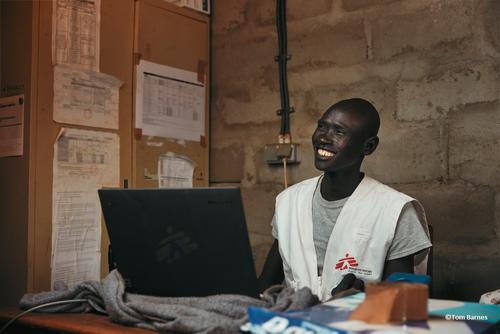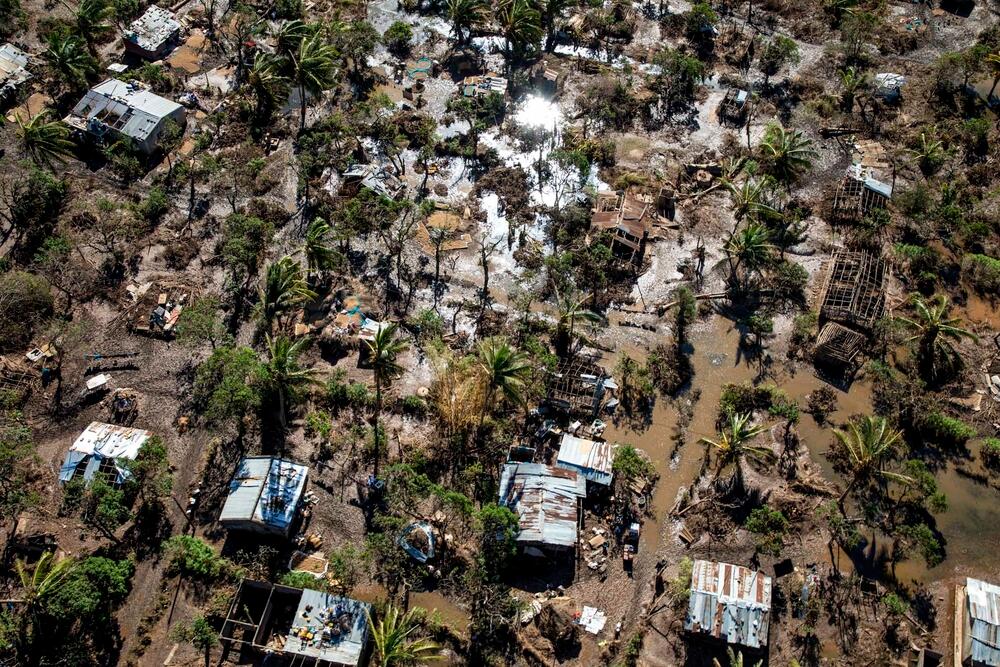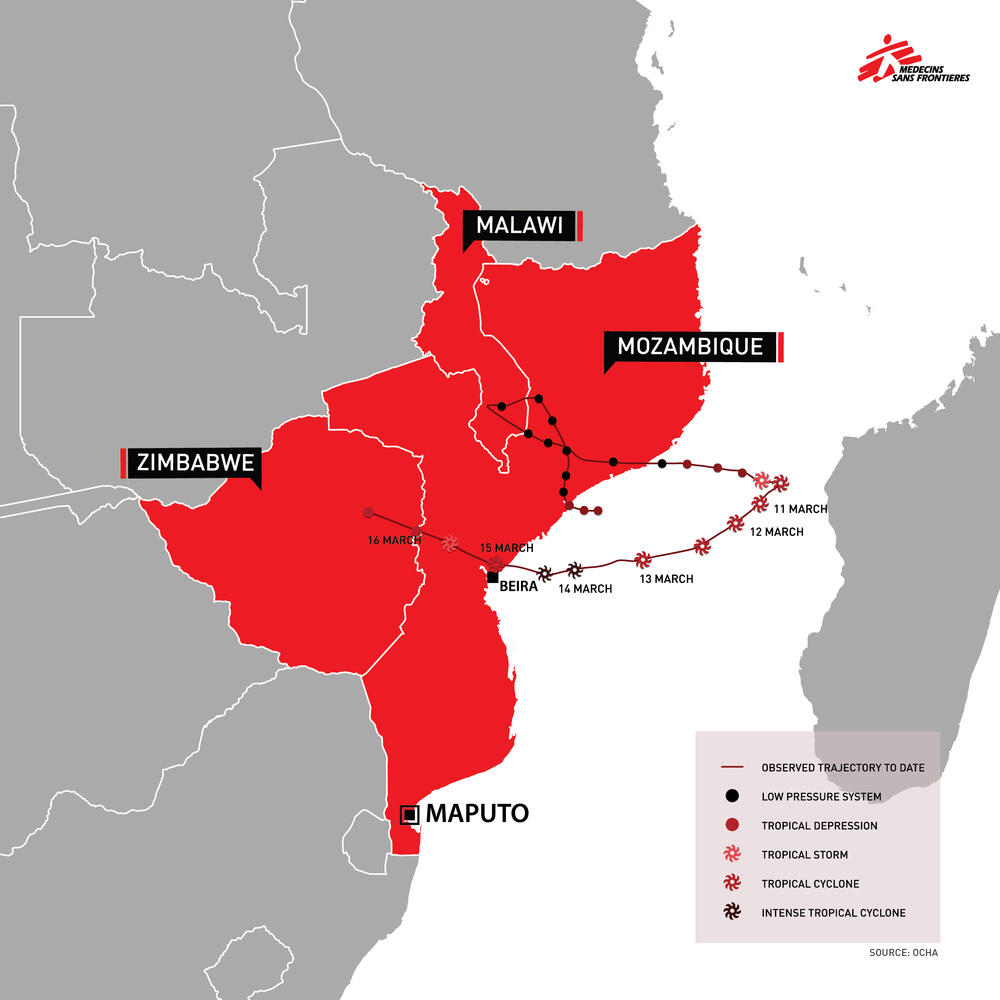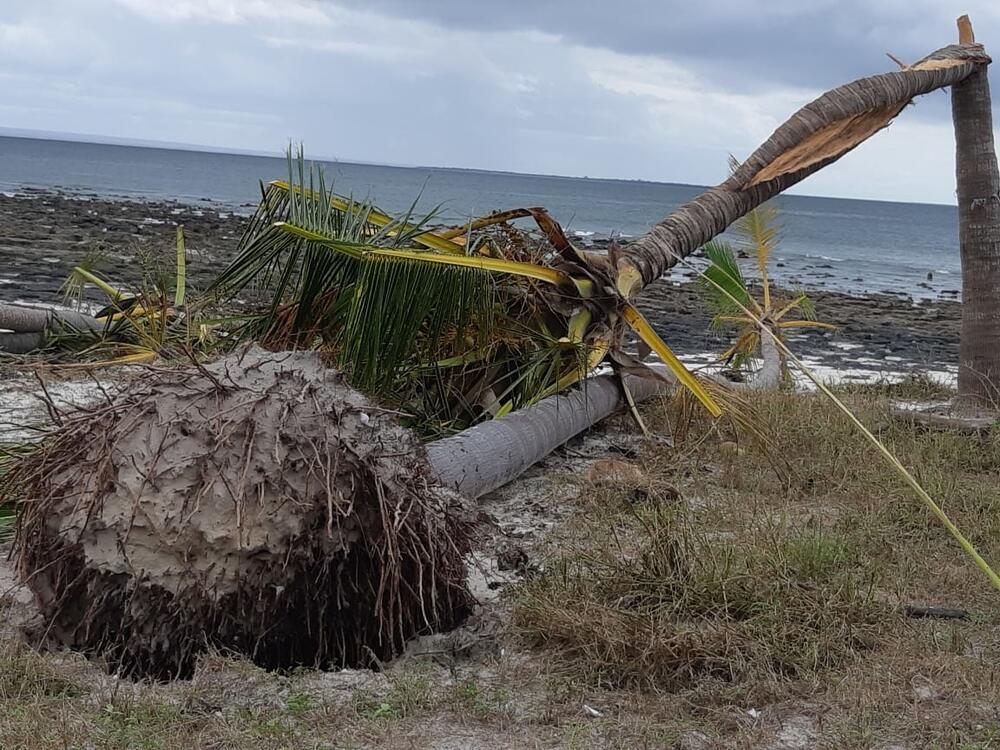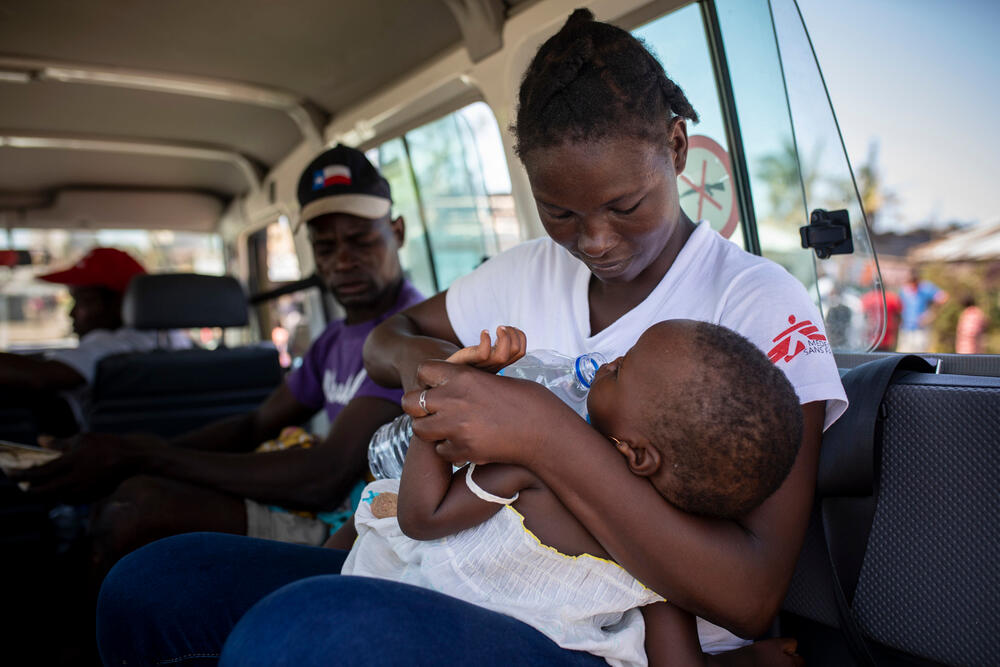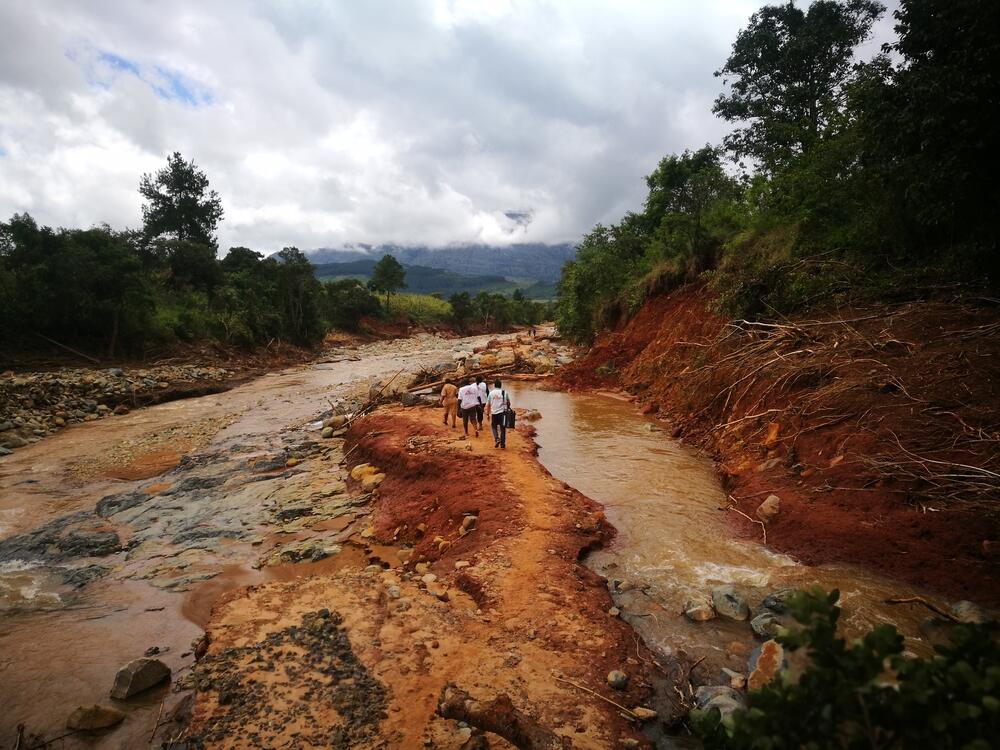Cyclones and flooding in Mozambique and southern Africa
MSF emergency teams are responding to the damage and devastating flooding caused by Cyclones Idai and Kenneth in Malawi, Mozambique, and Zimbabwe.
More than 100 tonnes of supplies, including medical kits, water and sanitation equipment, logistical items and other supplies have been sent to Beira in Mozambique.
After cholera was declared on 27 March, it seems as though a widespread outbreak in Beira has now been averted following an emergency vaccination campaign - carried out by the Ministry of Health with the support of MSF.
Many health centres, schools and other services in the area have re-opened, however, communities are still vulnerable in the aftermath of the disaster.
Our responses in Zimbabwe and Malawi have come to an end and our emergency responses to Cyclone Idai in Mozambique are in the process of closing down, or have been closed down.
MSF’s HIV projects were disrupted by the storm when health centres were damaged or destroyed. We have now returned to full capacity providing care for patients with HIV.
While the teams are still mapping the changes and challenges brought about by the cyclone it’s clear that many patients could not access medication for some time and that others were pushed to take bigger risks in order to find food and shelter.
Final crisis info update: 9 May 2019
Mozambique
Cyclone Kenneth
A second tropical storm, Cyclone Kenneth, hit the northern coast of Cabo Delgado province in Mozambique on Thursday 25 April. Several towns and communities are heavily damaged, while there are large areas that are flooded, or are at risk of flooding.
In Pemba, the capital of the province, MSF already had a small team present working on a water and sanitation project. Medical and logistical supplies were then sent to Pemba from the Cyclone Idai response in Beira, in anticipation of an emergency response.
“Matemo Island is heavily destroyed by Cyclone Kenneth, as well as the city of Macomia and its surrounding villages”, says Danielle Borges, coordinator of the project in Pemba.
“The impact of two cyclones in such a short space of time is devastating; it is a hard blow for the country that had only just started recovering from the first one."
Cholera outbreak
In the aftermath of Cyclone Kenneth, a cholera outbreak was declared on 2 May.
So far, this has affected the northern town of Pemba and district of Mecufi in the cyclone-hit Cabo Delgado province.
MSF is supporting the Ministry of Health by providing materials such as tents, water and sanitation equipment for a cholera treatment centre in the town, and is also preparing to respond to cholera or cholera-like symptoms and support the health infrastructure in Mecufi.
A vaccination campaign is being planned by the authorities.
Cyclone Idai
Tropical cyclone Idai hit the coastal town of Beira on 14 March and wrought extreme devastation along the central coastline of Sofala, Zambézia and Inhambane provinces.
According to the Government of Mozambique, 602 people have been confirmed dead, and over 1,500 injured, as of 8 April 2019.
803,125
People vaccinated against cholera in MSF supported-campaign
14,863
Cases of malaria reported in Sofala province
7,500
Litres of clean water supplied by our treatment facility every hour
The overall situation has in many ways slowly stabilised. Life in many parts of Beira and the flood-affected provinces of Zambesi, Sofala and Manica has in many ways returned to normal.
However, monitoring the health situation remains important while communities are still vulnerable and other consequences of the disaster may yet emerge.
With large areas of stagnant water still present, one concern is that mosquito numbers could increase resulting in higher rates of malaria. As of 22 April, 14,863 cases of malaria have already been reported in Sofala Province.
Cholera outbreak
In Beira, our cholera response in support of the Ministry of Health was very quick – as quick as it could realistically be given the supply and access constraints in the days after the cyclone. We were treating patients suffering from acute watery diarrhoea, suspected to be cholera, as early as 21 March.
The emergency vaccination campaign launched on 3 April reached 803,125 people, representing 98 percent of the targetted community.
We are continuing to support the Ministry of Health to address the ongoing cholera outbreaks in Beira, Buzi, Nhamatanda district and Dondo, as well as to prepare for possible further outbreaks in other locations like Mafambisse and Matua.
As of 22 April, the official number of cholera cases in these areas was 6,596 people.
HIV
Cyclone Idai was the first time a major natural disaster has hit a country with a high prevalence of HIV.
Our HIV projects were disrupted by the storm when health centres were damaged or destroyed, as well as when MSF staff were pulled into the emergency cholera response.
We have now returned to full capacity providing care for patients with advanced HIV, as well as to those with a statistically high risk of HIV, in Beira.
Clean water
Local authorities in Beira were quick to focus their energy on restoring the supply of clean water. While this decision saved countless lives around the city, the clean water was not reaching all of Beira’s residents.
To support the water supplied by the authorities, we installed a water treatment facility in Chingussura, a suburb to the north of Beira.
Our facility provides up to 7,500 litres of clean water per hour for the local healthcare centre and the local community.

Help us prepare for the next emergency
Water remains a concern across the flood and cyclone affected areas of Mozambique. While city water supplies have returned to many of the flood and cyclone affected areas, thousands still struggle to access clean water.
Our water and sanitation teams are out in the community putting in water points and assessing existing ones.
We have around 1,000 staff in the disaster area:
- 120 Mozambican staff who worked with MSF already in Beira before the cyclone
- 755 newly-recruited Mozambican staff, recruited specifically for this emergency response
- More than 140 international staff from countries in the region and worldwide
More than 100 tonnes of international air freight supply has already been sent to Beira, and an increasing supply operation is scaling up.
Zimbabwe
Cyclone Idai hit Chimanimani district in Manicaland Province after crossing through Mozambique.
The death toll stands at 181 with 330 people missing and nearly 22,000 people displaced.
Several bridges and whole roads were washed away, or were blocked by rock falls, leaving some communities reachable only by foot. Many have been left without homes or livelihoods and access to safe drinking water is a major issue.
In Zimbabwe, an MSF team of 10 people supported ministry of health staff in Chimanimani with patient management and the supply of essential medicines.
Teams also conducted assessments, delivered relief items, as well as rolled out water and sanitation activities to prevent outbreaks of water-borne diseases.
From 16 to 24 April, we supported a cholera vaccination campaign that reached 12,8251 people in Chimanimani and 33,4761 people in Chipinge.
Two MSF mobile teams also supported the worst affected health centres and settlements in Chimanimani to assess health needs and distribute medicines to clinics and village health workers.
The MSF team left Zimbabwe on 30 April.
Malawi
Malawi experienced heavy rain from the start of March. Coupled with Cyclone Idai, flooding affected the majority of Nsanje district in southern Malawi, with around 16,000 households affected.
Flooding caused 59 deaths, with 677 injuries and the displacement of around 87,000 people in camps overall.
An MSF team of 18 people supported the health ministry to cover the needs of an estimated 18,000 people in Makhanga on the eastern bank of the Shire river, with health, sanitation and non-food-item supplies.
On 11 April, we brought our response in Makhanga to an end.
Get the latest news, stories and updates, straight to your inbox
